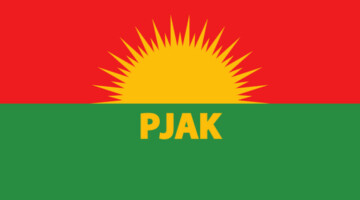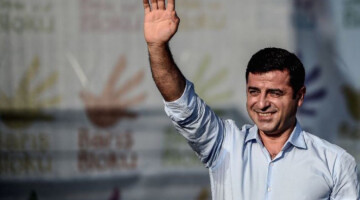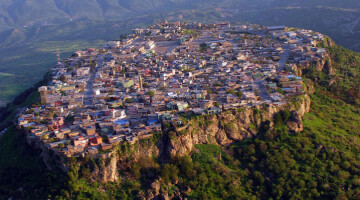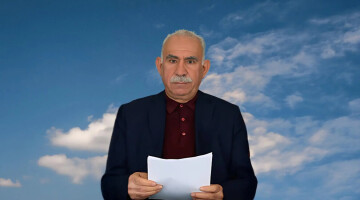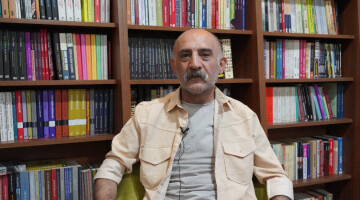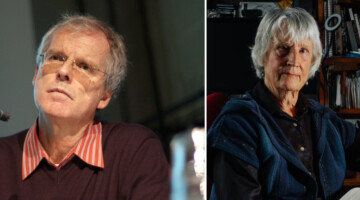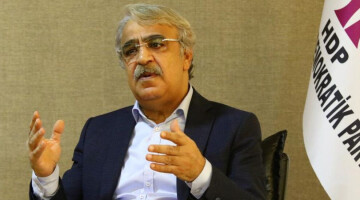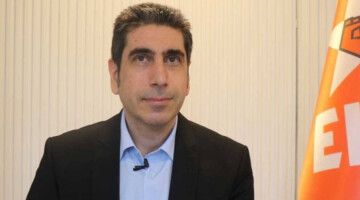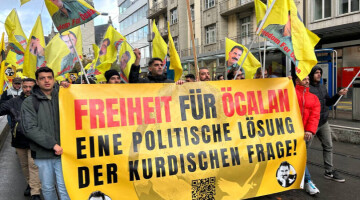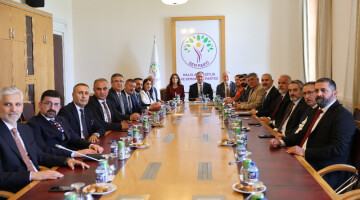The new economic leadership of the AKP government, like its predecessors, pledges to "fight against inflation". However, inflation remains high and the cost of living in Turkey is increasing day by day due to aggressive interest rate hikes, new taxes and price increases. The collective agreements that came into force in July and additional wage increases lag far behind the rising cost of living.
Hunger levels keep rising
According to the results of a monthly survey by Türk-İş, a trade union association, in August 2023, the hunger limit for a family of four rose to 12,198 liras (approx. 421 euros). The poverty line was calculated at 39,733 liras (approx. 1,337 euros). The “cost of living” of a single worker is 15,813 liras (approx. 546 euros) per month. As a result of this worrying development and rapid inflation, protests and work stoppages broke out in many factories, especially in Antep (Dîlok), as happened in January 2022. Even health workers walked out for a day to protest the lack of pay rises as pay rises planned for civil servants were not realised.
Minimum wage below the starvation line
Economist Özgür Müftüoğlu assessed these developments in an interview with ANF. He stressed that in the current conditions, where inflation is rising and purchasing power is falling, increased protest is necessary. Instead, there are only a few protests in Turkey, especially with regard to price increases, Müftüoğlu said, adding: "The rapid increase in inflation and the rapid decline in purchasing power have led to dramatic impoverishment. Turkey is currently experiencing the fastest increases in housing and food prices in the world. The rising costs of housing, food, health care and education pose serious problems. This impoverishment means that workers are increasingly in competition with one another. People fear losing what little they have. This forces some workers to work under increasingly poor conditions. Wages continue to fall. The so-called minimum wage is below the hunger line. Nevertheless, this minimum wage now accounts for almost 50 percent or even more of the average wage. A considerable number of employees are now even working below the hunger line. And this without counting retirees as they are at the bottom end of the scale.
'Willingness to protest in relation to price increases is low in Turkey'
In such a situation, protests are only natural. In comparable situations, loss of income, deteriorating working conditions and rising expenses would lead to social unrest. In Turkey, on the other hand, the willingness to protest remains limited. In other places, like Latin America, rising fuel and food prices are causing serious social conflict. So far, there has been no such mobilization in Turkey. This is due to various sociological reasons. Since the AKP took over the local government, it has not relied on a social program to guarantee social rights, but on a faith-based hand-out system. In my opinion, this represents the most important factor in the AKP’s 21-year reign. Which is why such protests are less pronounced in Turkey."
'Protests are taking place outside of union organisations'
Müftüoğlu pointed out that some of the current protests, as happened in 2022, are taking place in rather unorganized places. However, he predicted that rising poverty will see workers break free from the grip of bureaucratic unions and move towards class-based organization. "January 2022 was marked by workers' protests. At that time, however, contrary to our expectations, there was no resistance in the metals sector, where we felt the unions were stronger and better organised. On the contrary, a path was taken there to come to terms and reconcile with the system and, quite frankly, to soften the momentum and take the pressure off.
Today we have reached the point where there is fighting in Antep, especially in the industrial bases where organizing is being hampered. On the other hand, there are protests calling for additional wage increases as people either don't get their wages on time or their wages are very low due to high inflation. Similar to January 2022, it is not the big organizations, not the big unions, that are fighting, but self-organized struggles that started from the workers themselves and whose voices are getting louder and louder."
'Unions don't fight adequately'
Müftüoğlu continued: "We are also closely monitoring collective agreements in the metal sector, which affect around 150-160,000 workers. There is talk of a temporary increase of around 30 percent. However, this increase will be allowed and later deducted. In other words, what is given now will be taken later. There are actually a number of fraudulent practices that will result in long-term loss of workers in this field. But it turned out that the unions agreed, so I don't think they will fight a serious fight. This applies not only to Türk Metal or Çelik-İş, but also to Birleşik Metal, since these are bureaucratized structures."
'Workers need to organize themselves on a class basis'
Müftüoğlu said: "With poverty so widespread, workers need to organize, but at the same time they should challenge existing organizations. As part of this challenge, the next phase is for workers to disengage from these organizations and find a union in which to truly organize. This is undoubtedly achieved through a class-based form of fighting. I think they will try. The problem we face today is not limited to the metal sector, the textile sector or to places like Antep, Kayseri or Istanbul. We are facing a social crisis affecting all sectors, all areas, all of Turkey and all sections of society. Such a crisis can only be resolved through general mobilization. Regional workers' struggles must become full-scale mobilizations to be effective. The workers in the public sector should also be involved. In the absence of any serious mobilization in the public sector against the current collective bargaining agreement, only healthcare workers have walked off the job for a day."
'Solid ideological foundation is crucial'
Müftüoğlu underlined that the upcoming struggle needs a solid ideological basis, and said: "We have seen what happened in the elections and realized that the National Alliance and the Republican Alliance are no different. Therefore, any struggle to be waged now must have a solid ideological foundation. In other words, every individual must now take sides. As one side becomes incredibly wealthy and the capital makes huge gains, it creates more inequality and imbalance in a variety of ways. This will continue for the foreseeable future. The government's medium-term program will be announced soon. New taxes will most likely be introduced and these taxes will be borne by most of the population. The costs will continue to rise. In that regard, it can be expected that the struggle today will last longer than in the past."


